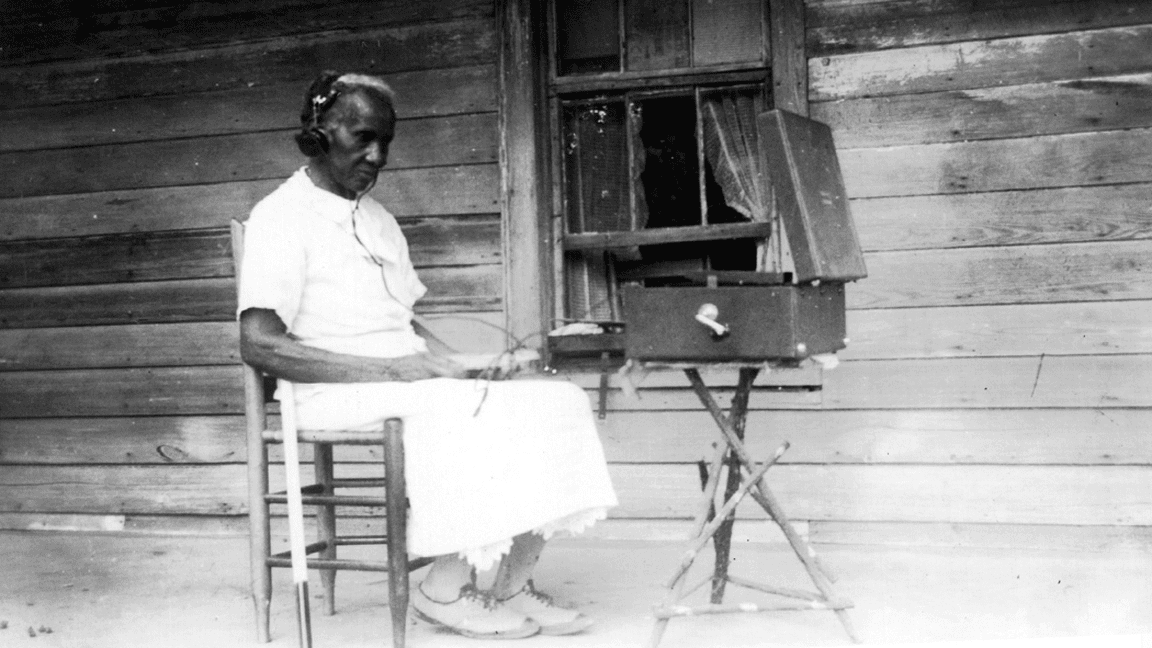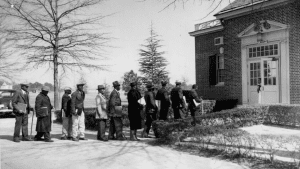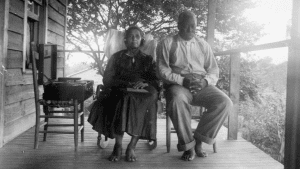Finding Sadie

“The blind veterans here in the Helen Keller class are able, thru talking books, to obliterate the tedious hospital hours and at the same time give themselves a literary background. I have been successful in teaching them all grades of braille… A great many, before learning Braille, had mental handicaps but the concentration on Braille seems to have obliterated these.” Sadie Peterson-Delaney, 1938
Chief Librarian Sadie P. Delaney was an innovator in the use of bibliotherapy at the Veterans Administration Hospital Library in Tuskegee, Alabama. She first practiced this therapeutic use of reading materials with troubled and immigrant children at the Harlem Branch of the New York Public Library. Her program received international recognition, as did her work developing both the first collection of Black history and literature and the first exhibition of African American Art. But it was her interest in working with patrons of the branch who were blind that inspired her to learn braille and Moon code.
Because of this work, Delaney was recruited for a position at the Tuskegee VA Hospital Library in 1924. There, she exponentially increased both the collections and programming at the library. In 1935, she created a special library department for patrons who were blind, through which she taught approximately 600 patients to read braille.

Enter the Sadie Delaney file in the American Foundation for the Blind Archive. A letter from Delaney details her new programs for veterans and rural blind patrons. The brief letter, quoted above, sincerely thanks AFB for the assistance they provided with talking books and canes. Additionally, Delaney enclosed a series of photographs with the letter, which is one feature that makes this correspondence stand out. While most of the subjects in the AGENCIES series of the AFB Archive are housed in their own named folder, these documents were found in a folder simply labeled ALABAMA: General. The first piece of correspondence in the grouping was a rather mundane response from AFB stating that, since the director was on vacation, the assistant director has passed the duty to respond to Delaney along to a field representative. It was not something that would have, alone, stood out from the many other papers in the folder or the dozens of folders in the box.
But those four photographs are incredibly personal, both because of the subjects and the captions from Sadie that are hand-written on the reverse of each one. The first shows eleven veterans in line outside of the library, waiting to go to their daily class. Most hold canes and braille books. Another photo shows Sara Richardson, 76, on a rural porch with a talking book player, headset, and the white cane that Delaney stated she used to get to church. A third photo shows Maudie Driscoll, 88, also listening to a talking book on a front porch. And finally, Tim and Susie Dillard are shown barefoot, with the country wilderness behind them. The caption reads, “This blind couple are very happy” with the talking books that they are listening to on the porch.

Sadie Peterson-Delaney received much recognition during and after her life, including having the African Roots Library branch of the Poughkeepsie Public Library named after her. It should be noted, though, that she was originally denied entry into the Alabama Library Association because the group did not allow people who were African American to join. Even after an association president did admit her, her 1951 dues were returned, she was kicked out of the organization, and she was told to start an African American chapter. She refused and was never allowed back into the organization.
Sadie Peterson-Delaney can be researched further at the New York Public Library Archives, Dutchess County Historical Society, and the Sadie Peterson Delaney African Roots Branch Library.
